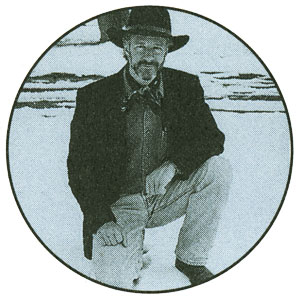 Andrew Schelling, poet, Zen student, and translator of India’s old verse, teaches at Naropa University. Regarding his essay“Bardo of Lost Mammals,” he remarks: “Buddhist texts old and new refer to the interdependence of all forms of life, an insight supported by everything I learn about ecology. To me, this means that in a period of widespread environmental degradation, the neighborhood, the watershed, or the bioregion becomes the ‘hall of practice.”’
Andrew Schelling, poet, Zen student, and translator of India’s old verse, teaches at Naropa University. Regarding his essay“Bardo of Lost Mammals,” he remarks: “Buddhist texts old and new refer to the interdependence of all forms of life, an insight supported by everything I learn about ecology. To me, this means that in a period of widespread environmental degradation, the neighborhood, the watershed, or the bioregion becomes the ‘hall of practice.”’ 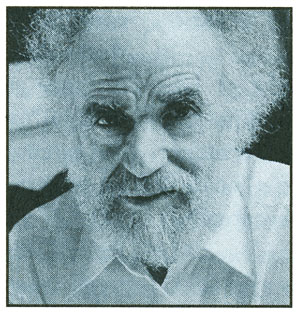
Robert Hirschfield, who writes of loss and sorrow in a community of refugees, tells us: “Some years ago I was told there were Cambodian emigres living in my old neighborhood in the Bronx. I’d always been haunted by what I had read about the Killing Fields, and wondered from time to time about the survivors and what their lives were like in the wake of their shattered world. My trips to the Bronx took me back to my oId world, and the Cambodians, through my questions, back to theirs.”
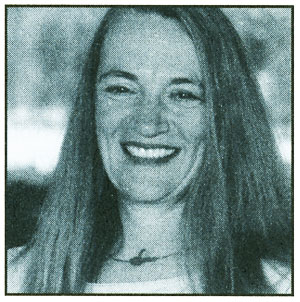 Judith Simmer-Brown, Achatya (master teacher) in the Shambhala Buddhist lineage of Ven. Chogyam Trungpa Rinpoche, tells us: “The morning I completed this piece on the ‘bardo’ was September 11, the day of the terrorist attacks-a classic bardo experience for the entire United States. I was paralyzed, without thought, and almost scrapped the piece. But my teacher taught me to also pay attention to the insignificant gaps in our very ordinary lives in order to truly understand the ‘in-between’ of the bardo. So here it is.”
Judith Simmer-Brown, Achatya (master teacher) in the Shambhala Buddhist lineage of Ven. Chogyam Trungpa Rinpoche, tells us: “The morning I completed this piece on the ‘bardo’ was September 11, the day of the terrorist attacks-a classic bardo experience for the entire United States. I was paralyzed, without thought, and almost scrapped the piece. But my teacher taught me to also pay attention to the insignificant gaps in our very ordinary lives in order to truly understand the ‘in-between’ of the bardo. So here it is.”
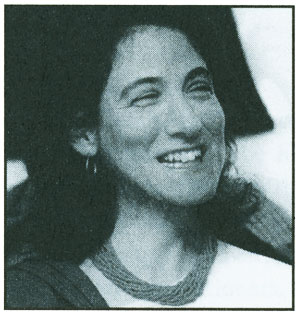 Author, translator, and professor of Religious Studies at Rice University, Anne Carolyn Klein writes: “This is my first story as an adult. I’d written many fairy tales as a child, and wanted to touch back to that after years of academic writing. Once, as I was typing a Tibetan lama’s lecture in real time at a retreat, a friend impishly suggested, ‘Soon, he’ll be teaching what you’re typing.’ My oId circuits lit up. ‘I’ll write a story about that,’ I hoarse-whispered back. This is its beginning.”
Author, translator, and professor of Religious Studies at Rice University, Anne Carolyn Klein writes: “This is my first story as an adult. I’d written many fairy tales as a child, and wanted to touch back to that after years of academic writing. Once, as I was typing a Tibetan lama’s lecture in real time at a retreat, a friend impishly suggested, ‘Soon, he’ll be teaching what you’re typing.’ My oId circuits lit up. ‘I’ll write a story about that,’ I hoarse-whispered back. This is its beginning.”
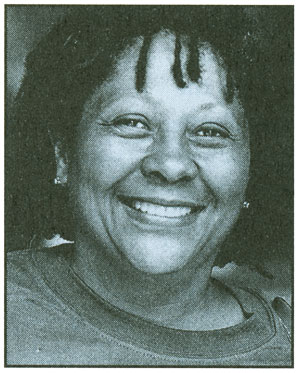 Marilyn Nelson has twice been a finalist for the National Book Award in poetry. “Aborigine in the Citadel” is her first essay in Tricycleand recounts her teaching days at West Point. “I hear occasionally from some of my cadets, now 2nd Lieutenants. Two are fellows at Oxford University. One is flying helicopters, and invited me to his wedding. One spent two weeks of his first leave at a summer writer’s conference. One is struggling with the thought of conscientious objection. In your meditations, please hold West Point’s cadets up to the Light.”
Marilyn Nelson has twice been a finalist for the National Book Award in poetry. “Aborigine in the Citadel” is her first essay in Tricycleand recounts her teaching days at West Point. “I hear occasionally from some of my cadets, now 2nd Lieutenants. Two are fellows at Oxford University. One is flying helicopters, and invited me to his wedding. One spent two weeks of his first leave at a summer writer’s conference. One is struggling with the thought of conscientious objection. In your meditations, please hold West Point’s cadets up to the Light.”
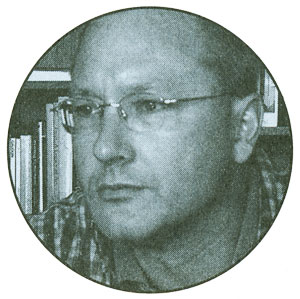 John House, who writes about the bardo of being “between jobs”, tells us: “The chance to write about my transition from corporate cog to terrace dwelling freelancer was a great gift. At a time when I often felt like a zoo animal moved overnight to a new enclosure, the need for constant, close attention to what was happening helped me realize that there was nothing dangerous hiding in the corners.” ▼
John House, who writes about the bardo of being “between jobs”, tells us: “The chance to write about my transition from corporate cog to terrace dwelling freelancer was a great gift. At a time when I often felt like a zoo animal moved overnight to a new enclosure, the need for constant, close attention to what was happening helped me realize that there was nothing dangerous hiding in the corners.” ▼
Thank you for subscribing to Tricycle! As a nonprofit, we depend on readers like you to keep Buddhist teachings and practices widely available.